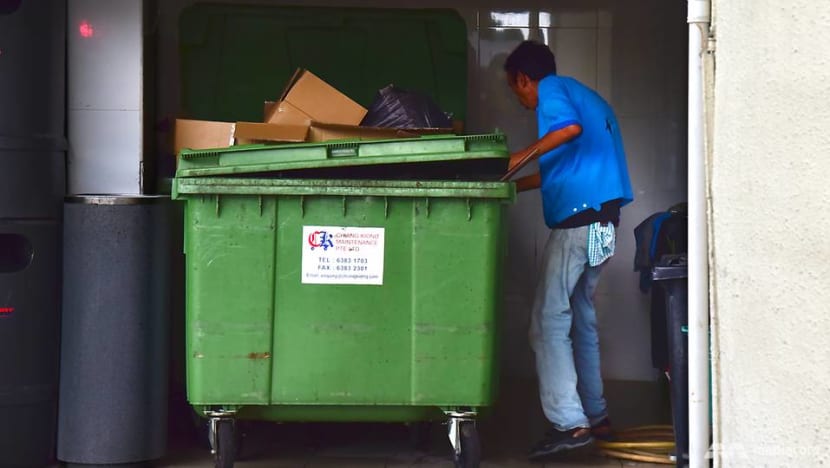
COVID-19: Medical waste workers put in extra hours to handle extra volume
10/04/2020
SINGAPORE: By 6am every morning, Mr Tan Chiak Kong is already in his truck, fully decked out in an N95 mask, surgical gloves and disposable overalls, ready to drive off for his first trip of the day.
His first destination is usually a hospital, where he parks the truck at one of its waste collection sites, and manually loads 40 to 50 sealed bins onto the vehicle, sometimes with the help of a colleague.
After that, he drives back to Tuas and unloads them at his workplace – a facility where the content of the bins is incinerated at a temperature of more than 1,000 degrees C.
The 50-year-old is one of the 30-odd workers at medical waste management company Asia Medical Enviro Services.
Ever since the lockdown in his home country of Malaysia, Mr Tan has been on the road seven days a week, picking up two half-day shifts on Saturdays and Sundays, to help his company cope with the higher demand.
Like his frontline counterparts in Singapore during the COVID-19 outbreak, Mr Tan has been working harder than ever despite the risk of catching the invisible pathogen in his role as a medical waste collection worker.
“Of course I’m worried,” Mr Tan, who is one of the firm’s seven Malaysian staff members, said in Mandarin about coming into contact with the virus through his job. “But I also have a responsibility to this company. Now, they’re so busy.”
According to the National Environment Agency (NEA), the daily amount of pathogenic waste collected from medical institutions in March was up by 60 per cent from the 2019 daily average of 10.3 tonnes per day.
While declining to reveal exact figures, Asia Medical Enviro Services’s managing director Gabriel Ho said that the volume of waste treated has gone up, but it is still at a manageable capacity.
Among his clients are SingHealth’s hospitals, including Singapore General Hospital and Sengkang General Hospital. The company, which was Sembcorp’s medical waste division until it was spun off as an independent entity in 2018, is one of the country’s five toxic industrial waste collectors licensed to treat pathogenic waste from medical institutions.
Mr Ho has brought in five more workers since the start of 2020 to ensure he would have enough hands to handle what he anticipated could be higher demand for his services, after hearing the news that medical waste volumes in China were surging. He also began to stock up on protective gear and initiated the company’s crisis protocols in January.
On the day that Malaysia announced it would close its borders, Mr Tan thought “long and hard” about whether to return to be with his wife and two daughter in Johor Bahru.
